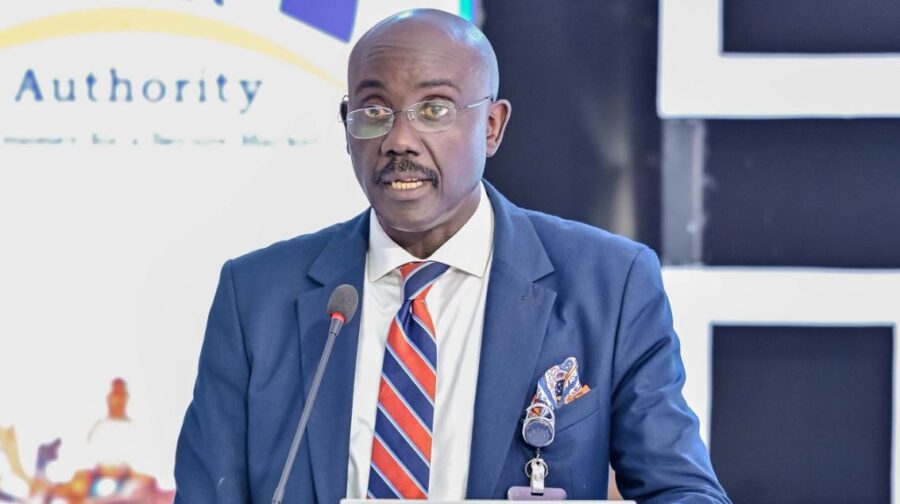BoU’s Executive Director National Payment Systems, Dr. Tumubweinee Twinemanzi is the Chairman of the Financial Sector Anti-Fraud Consortium that has been launched today. This landmark initiative in the collective fight against fraud will help maintain the financial system’s integrity. It has been established by Financial Intelligence Authority, Uganda Communications Commission, Uganda Bankers’ Association, and Payment Systems Providers Association (PSPA).
It brings together regulators, supervised financial institutions and payment providers, law enforcement, and the public to proactively anticipate, detect, prevent and respond to financial fraud with clarity, consistency, and coordination.
The core pillars that will be operationalized in the coming months include a robust Fraud Incident Reporting Portal hosted at the Financial Intelligence Authority, targeted public awareness campaigns, capacity building for police, prosecutors and judicial officers, and advocacy for legal reform.
In his speech, Dr. Tumubweine Twinemanzi said, “we realised that a fraud incident that happens in one commercial bank often goes on to happen in another, sometimes even orchestrated by the same fraudster. And this happens courtesy of the inability to share information across our financial institutions. The gap and the need for having a unified forum that cuts across the financial and economic sector is evident.”
He further added that fraud is not just about misappropriated funds, fraud affects a key fundamental principle of what finance is about, which is ‘trust’. “Fraud erodes trust” he reiterated. Finance service providers across the financial sector in essence are all selling one thing: “trust, therefore, anything that affects it, significantly undermines the very foundation of the economic activity under the sector” said Twinemanzi.

According to industry experts, fraud by its very nature is a violation of sanctity of contract, contract is when two parties agree in terms of what the obligations are to achieve a certain objective. Therefore, when fraud in whatever nature especially financial fraud, prevents parties from fulfilling these obligations, makes it a technical war on the economy.
The consortium’s primary objective is to proactively anticipate, detect, prevent, and respond to financial fraud with clarity, consistency, and coordination. To achieve this, the consortium will focus on several key areas, including: To achieve this, a robust portal hosted at the Financial Intelligence Authority will enable efficient reporting and tracking of financial fraud incidents.
Public Awareness Campaigns
Targeted campaigns to be carried out with coordination of the consortiums members will educate the public on the risks of financial fraud and how to protect themselves.
Capacity Building
Training programs will be implemented to enhance the capacity of police, prosecutors, and judicial officers to effectively handle financial fraud cases.
Advocacy for Legal Reform
The consortium will also advocate for legal reforms to strengthen the regulatory framework and ensure that financial fraud is effectively addressed.

Impact on Money Laundering and Financial Fraud
The Financial Sector Anti-Fraud Consortium will play a vital role in combating money laundering and other forms of financial fraud in Uganda through;
Improving Detection and Prevention
The consortium’s proactive approach will help identify and prevent financial fraud, reducing the risk of money laundering and other illicit activities.
Increasing Accountability
The consortium will promote accountability among financial institutions and payment providers, ensuring that they take adequate measures to prevent financial fraud.
The Financial Sector Anti-Fraud Consortium is a significant step towards combating financial fraud and maintaining the integrity of Uganda’s financial system. With Dr. Tumubweinee Twinemanzi at the helm, the consortium is poised to make a meaningful impact in the fight against money laundering and other forms of financial fraud.




